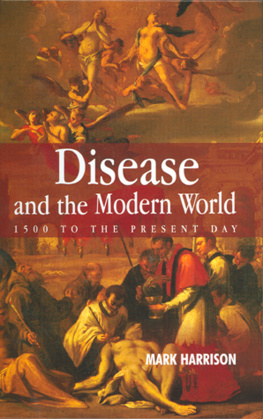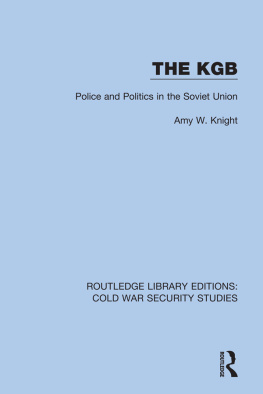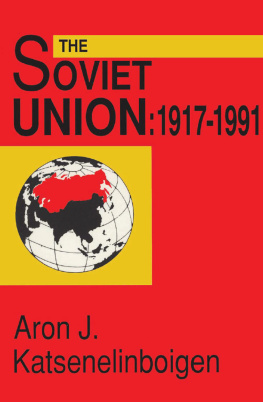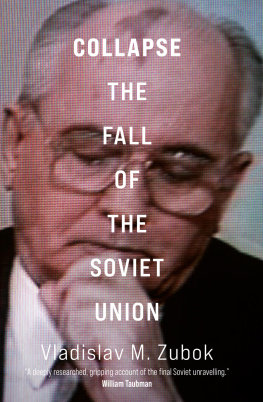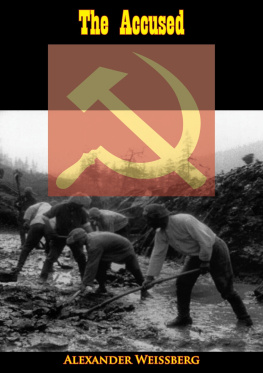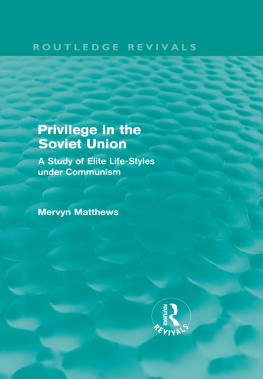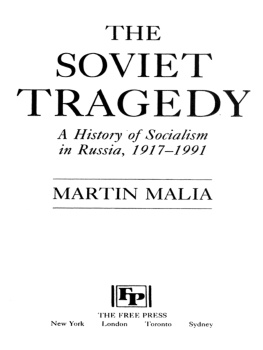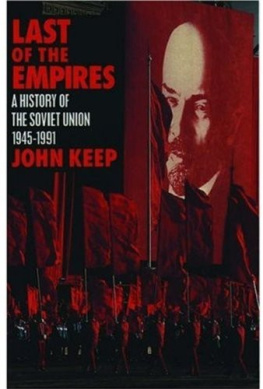One Day We Will Live without Fear

With its eminent scholars and world-renowned library and archives, the Hoover Institution seeks to improve the human condition by advancing ideas that promote economic opportunity and prosperity, while securing and safeguarding peace for America and all mankind. The views expressed in its publications are entirely those of the authors and do not necessarily reflect the views of the staff, officers, or Board of Overseers of the Hoover Institution.
www.hoover.org
Hoover Institution Press Publication No. 665
Hoover Institution at Leland Stanford Junior University, Stanford, California 94305-6003
Copyright 2016 by Mark Harrison
All rights reserved. No part of this publication may be reproduced, stored in a retrieval system, or transmitted in any form or by any means, electronic, mechanical, photocopying, recording, or otherwise, without written permission of the publisher and copyright holders.
Efforts have been made to locate original sources, determine the current rights holders, and, if needed, obtain reproduction permissions. On verification of any such claims to rights in the images or figures reproduced in this book, any required corrections or clarifications will be made in subsequent printings/editions.
Hoover Institution Press assumes no responsibility for the persistence or accuracy of URLs for external or third-party Internet websites referred to in this publication, and does not guarantee that any content on such websites is, or will remain, accurate or appropriate.
Cataloging-in-Publication Data is available from the Library of Congress.
ISBN-13: 978-0-8179-1914-6 (cloth : alk. paper)
ISBN-13: 978-0-8179-1916-0 (epub)
ISBN-13: 978-0-8179-1917-7 (mobi)
ISBN-13: 978-0-8179-1918-4 (PDF)
To my sisters and brother: Elizabeth, Dinah and Joyce, and John and Anne
Preface
Remembering how in so strange a time
Common integrity could look like courage.
Talk by Yevgeny Yevtushenko (1960)
P eople in Russia say that those who do not regret the collapse of the Soviet Union have no heart, and those that do regret it have no brain, Russian President Vladimir Putin told German television viewers in 2005. His words suggested that to bring back the Soviet Union is desirable but unrealistic.
What kind of a country was the Soviet Union? What was it really like? No book could capture the everyday lives of hundreds of millions of people over several generations. But for some of those hundreds of millions on some days, life was like this. They lived the stories in this book.
My stories tell of everyday lives in a police state. By accident or design, ordinary people become entangled in the workings of Soviet rule. Famous people step in and out of my stories, but the central characters are people whose names will have been remembered only within their families: a budding artist, an engineer, a pensioner, a government office worker, a teacher, a group of tourists. The events are drawn from the 1930s to the 1970s. The first story takes place in the Far East on the Chinese border and the last in the western borderlands of the Baltic region.
My stories are based on historical records. I found them while investigating other matters in the Library & Archives of the Hoover Institution, which holds many documents of the Soviet Communist Party and state. I did not choose the stories by following a research design. Rather, they chose me; they grabbed me and would not let me go. They chose themselves for their humanity and their inhumanity, shining a clear light on many tragic, funny, and bizarre aspects of Soviet life.
In every story, something happens that triggers an investigation. A mistake is made, or is it something worse? Then, an investigation follows. Who is to blame, and is the hand of the enemy at work in the events under investigation? The evidence is often one-sided because the characters speak only through the investigator. Some find a voice through witness statements or interrogation summaries. Others find a voice when private conversations are reported or intercepted. Some voices are not heard, but can be read between the lines.
(The Mill) takes place in wartime. An ambitious security officer in a remote outpost plays a deadly game with local residents. His superiors know and approve. Years later the story is uncovered. What sort of vindication awaits the victims? The story provides background for later chapters, including Stalins violent rule and the turn away from mass terror after he died.
In (Truth Hurts), a woman comes back to work after sick leave and is rushed into a decision that she gets catastrophically wrong. She is a censor; the decision concerns a dubious political cartoon. Lots of people suffer from her mistakemore than we know, probably, because this is 1937, the year of Stalins Great Terror.
(Heretics) is set in Soviet universities and colleges in the late 1940s. Each story begins with a denunciation. We see the many strange ways in which teachers and scientists could get on the wrong side of each other, their students, and the authorities. Every accusation is examined minutely, no matter how ridiculous. The Paris Commune, potatoes, genetics, relativity, and anti-Semitism all have their turn.
(The Mafia) begins soon after Stalins death. Soviet life is thawing. An old man with time on his hands writes to the local papers about mismanagement and fraud on the local collective farm. At first he is annoying; then he becomes a threat. The locals join forces against him: the farmers, the party, the police, even the KGB. The old man ends up losing everything. Then, Moscow steps in. But waitwhose side are you on?
By the time of (You Have Been Warned), the secret police had learned to deal bloodlessly with dissent and deviance. It was cheaper and kinder to frighten people than to kill them. A first line of defense was the preventive interview. Some case histories are told from the 1960s and 1970sstraight, comic, and mysterious. This chapter dwells on the Kaunas riots of 1972, a moment when secret policing failed.
(A Grand Tour) recounts a visit by a group of Soviet tourists to North America in 1970, seen through KGB eyes. It explains how Soviet citizens got to travel outside their own country and the restrictions they traveled under. Above all, it shows the trouble they could get into on their travels. At any time they could bump into real or imagined spies or say or do the wrong thing.
In interrogate neighbors, and call up informants. Whats going on? The KGB asked the same question. We learn something about the purposes of surveillance.
The book is laid out to meet the needs of more than one kind of reader. The stories in each chapter can be appreciated by anyone, including those with little previous knowledge of Russia or communism. For those who come equipped with specialist knowledge or who wish to acquire it, every chapter provides primary and secondary sources, including a list of archival documents and what I have drawn from them in the context of the existing scholarly literature. An afterword considers the reliability of Soviet archival records and their relationship to historical truth.

From the 1930s to the 1970s, the Soviet police state underwent considerable change. From something bloody and brutal it became sophisticated, refined, and sparing. But the problem that the police state had to manage did not change, and its underlying principles remained the same. These principles are spelled out in . In other chapters I refer briefly to these principles from time to time, but I have tried to write in such a way that no reader will feel obliged to flick back and forth between chapters in order to follow the narrative.
Next page

